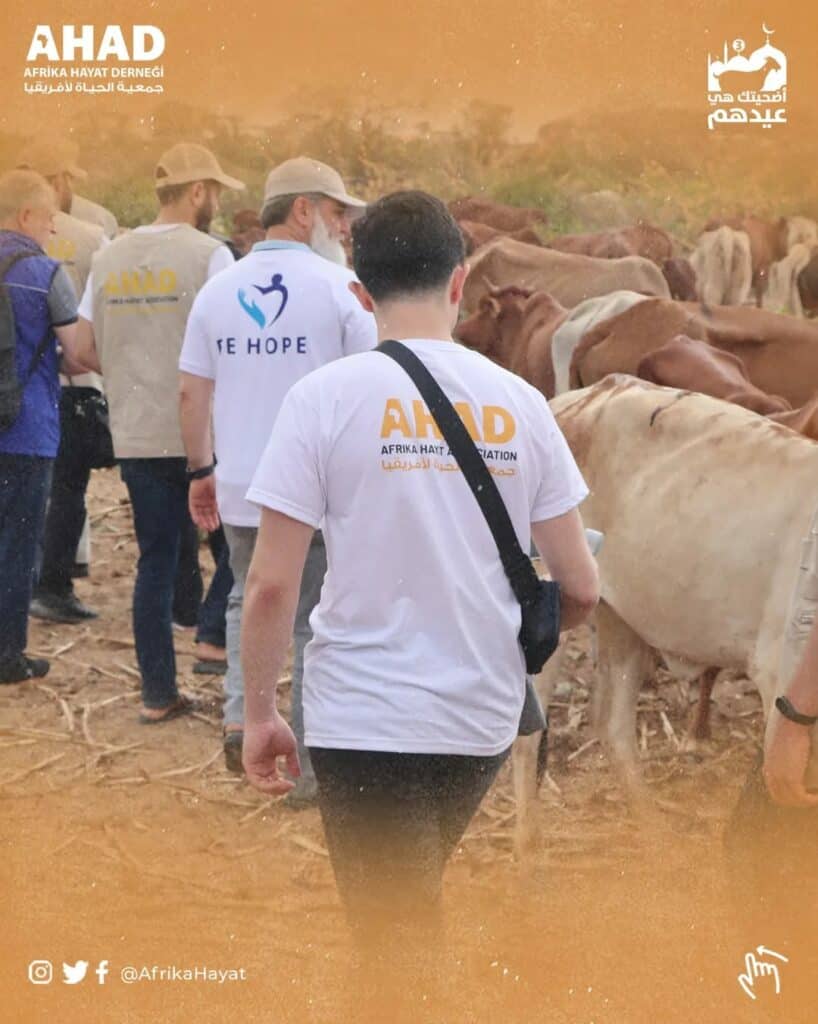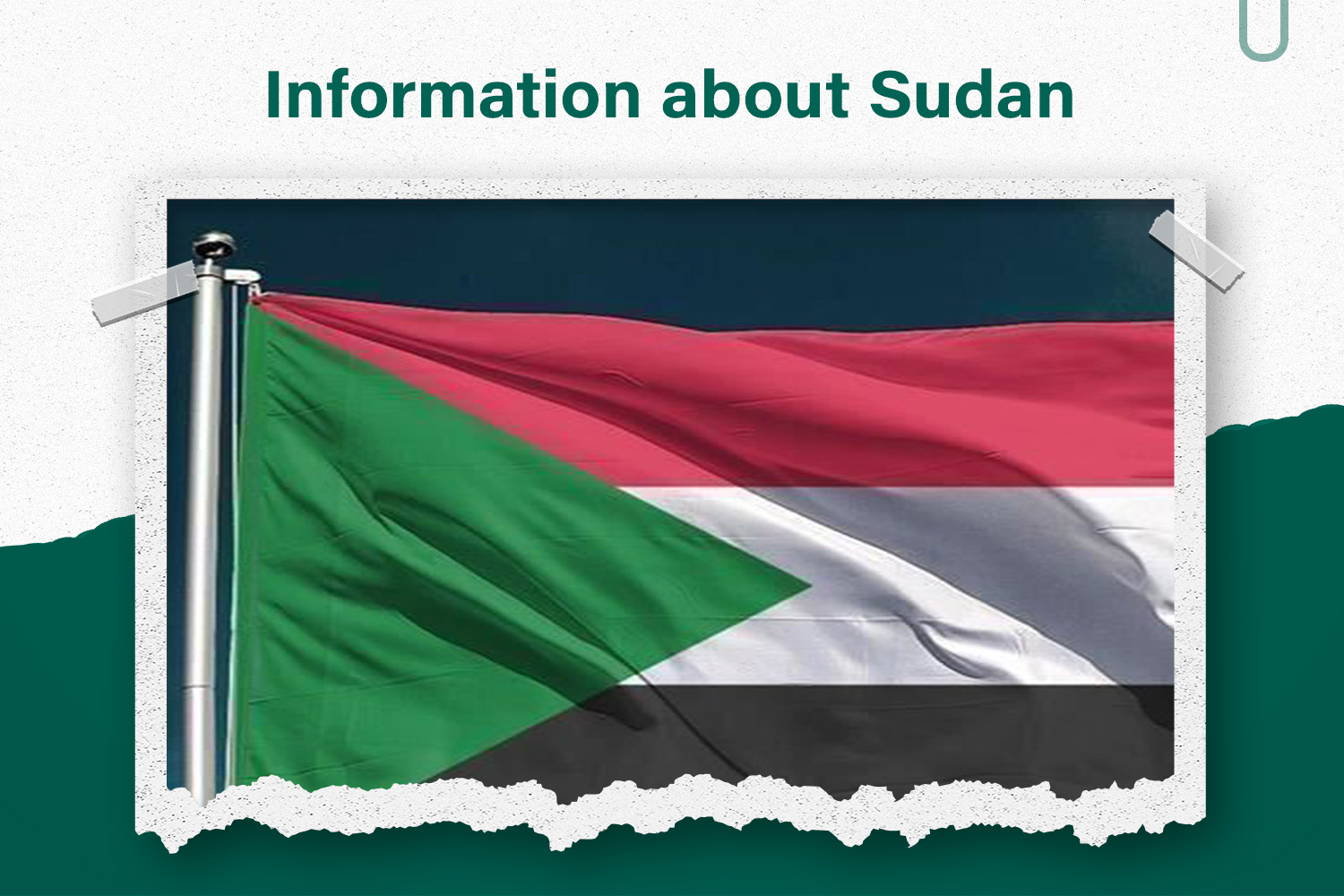Information about Sudan is the title of our article, as Sudan is one of the largest African countries in terms of area and is located in the north-central part of the African continent. It is bordered to the South by South Sudan, to the East by Eritrea and Ethiopia, to the West by Chad, and to the north by Libya.
Information about Sudan and its geographical location
The area of Sudan extends to about 1,886,068 square kilometers, the climate in the South is characterized by being Tropical tropical while the drought intensifies in the North, and it is characterized by the diversity of geographical nature in Sudan, where there are deserts, waterfalls and valleys, and the Nile River is the backbone of the Sudanese economy, and Sudan has large natural resources including agriculture, livestock and extractive industries.
There are also many cities in Sudan, where Khartoum is the capital of Sudan and it is the largest city, and it includes many important tourist attractions as there are many other important cities such as Port Sudan, aksta, white and other cities that have a distinctive history and provide many tourist activities for visitors.
History and culture
Information about ancient and modern Sudan
Sudanese history is characterized by its importance and richness, as its roots go back to many ancient civilizations, including the Kushite Kingdom, the apostate Kingdom, the Mamluks, the Ottoman state, and then the British rule, which lasted for a long time. The modern history is characterized by the independence movement, which was led by the Sudanese national movement in 1956, and then the outbreak of political and military conflicts in subsequent years.
Sudanese culture and arts
Sudanese culture is characterized by its diversity and richness and its embodiment of ethnic, linguistic, religious and cultural diversity, which is evident in cuisine, clothing, music, dances and folk heritage. Sudan also includes many artists, writers, poets, historians and scientists, and Sudanese arts are characterized by embodying Sudanese, Arab and African identity and Ethnicity at the same time, and are famous for gold and silver threads, printing on fabric, painting with henna and wood.

Information about Sudan
Population and cities
Information about Sudan and population distribution
Sudan is characterized by a fascinating diversity in the distribution of its population over vast territories, with a population of about 44 million people, and the largest percentage of the population is concentrated in the north-west and central next to the Nile and blue and White Nile regions. Most of the population uses walking to move between cities and villages, and to take refuge in markets and major commercial centers.
Information about Sudan and the most important cities
Sudan includes a large number of distinctive cities that play a major role in the lives of Sudanese, and Khartoum, Amran, Nyala, Wadi Halfa, Kadugli and Port Sudan are among the most important Sudanese cities. Khartoum is famous for its economic and political center, while Omran is the capital of the Darfur region and Nyala is the second largest city in the region. The city of Wadi Halfa is also of great importance due to its strategic location close to the Sudanese-Ethiopian border.
Economy and agriculture
Information about Sudan and economic sectors
Agriculture is one of the most important economic sectors in Sudan, where the agriculture sector accounts for more than 40% of the country’s economy. In addition to agriculture, mines, the oil and natural gas industry are among other sectors that contribute to the economic growth of Sudan. Sudan is facing major economic challenges, including high inflation and difficult access to basic goods.
Agriculture and the most important agricultural exported crops
Agriculture has been the main activity on which Sudan has depended since time immemorial, as the agricultural sector accounts for almost 40% of GDP, and is also the main factor supplying the economy with food and agricultural goods. Cotton, corn, coffee and sesame are among the most important agricultural crops grown in Sudan, and these crops enjoy a high reputation internationally as a source of agricultural exports

Information about Sudan
Information about Sudan
Language and religion
Arabic is the official language of Sudan, and the local population speaks various languages such as Nubian, pharaonic, Beja and Balochi. English is also used in education and business, and Sudan is one of the few countries in the world that largely retains and maintains the grammar of the classical language.
Information about Sudan and religion
Islam is the most widely practiced religion in Sudan, with almost 90% of the population professing it. Muslims in Sudan are considered to follow the Sunni School of Islam, practicing the five prayers, fasting, Zakat and Hajj. There are also minorities professing Christian and local religions in Sudan. Sudan is characterized by great multiculturalism and high religious tolerance, where Muslims, Christians and other religious minorities coexist peacefully.
Nature and Wildlife
Environmental diversity in Sudan
Sudan is famous for its wide ecological diversity, where there are deserts, plains, mountains, forests, rivers and lakes. The country also contains many desert areas such as the Nuba desert, the Kufr desert and the Al-Batinah desert, as well as Meadows and hills in areas such as Kordofan and Darfur.
Wildlife and national parks
Sudan has many wild animals such as lions, leopards, gazelles, giraffes, elephants, Meek Cheetahs and a lot of birds. There are many national parks in Sudan to protect wildlife, including dingla Park, kamliyat Park, dingla Park and Sennar Nature Park. These parks provide an opportunity for visitors to enjoy the beauty of wildlife and see the distinctive natural attractions of Sudan.
Governance and politics
Information about Sudan and the system of government
The system of government in Sudan is characterized as Republican, consisting of the president of the Republic and the Council of ministers. The Sudanese government has legislative, executive and judicial powers. The current president of the Republic, Omar al-Bashir, is one of the longest-serving African presidents to hold the post of presidential government in modern history.
The role of the AHAD Association in Sudan
AHAD is concerned with providing support and assistance to the Sudanese community through the implementation of educational, development and health projects in many regions of the country. This association is one of the most prominent charities in Sudan, where it works hard to achieve the social and economic well-being of the local population. AHAD is a non-governmental, non-profit organization that strives to achieve social justice and equality for all.
The system of government in Sudan is characterized as Republican and consists of the president of the Republic and the Council of ministers, as the Sudanese government has legislative, executive and judicial power. The current president of the Republic, Omar al-Bashir, has held the post of presidential ruler for a long time.
AHAD society is interested in providing support and assistance to the Sudanese community through the implementation of educational, development and health projects in many regions of the country. AHAD is among the most prominent charities in Sudan as it works hard to achieve the social and economic well-being of the local population.
Sudan can achieve a bright future if political and economic stability is achieved in the country, and the government and charitable organizations such as AHAD can achieve more coordination and cooperation in order to improve the lives of the Sudanese people.
The aspiration of the Sudanese community is to obtain education, health services and decent housing, and this is the goal that AHAD is working on through the implementation of its projects.
Conclusion: in the end, there should be a joint effort of the government, civil society and charitable organizations to achieve the social and economic well-being of the Sudanese people. Everyone should strive to improve the quality of life in Sudan and ensure sustainable development in the country.
Frequently asked questions and answers
What is the system of government in Sudan
The system of government in Sudan is characterized as Republican and consists of the president of the Republic and the Council of ministers.
What is the AHAD Association
AHAD is an association working in Africa to provide support and assistance to the Sudanese community, through the implementation of educational, development and health projects in many regions of the country.
Related articles:




